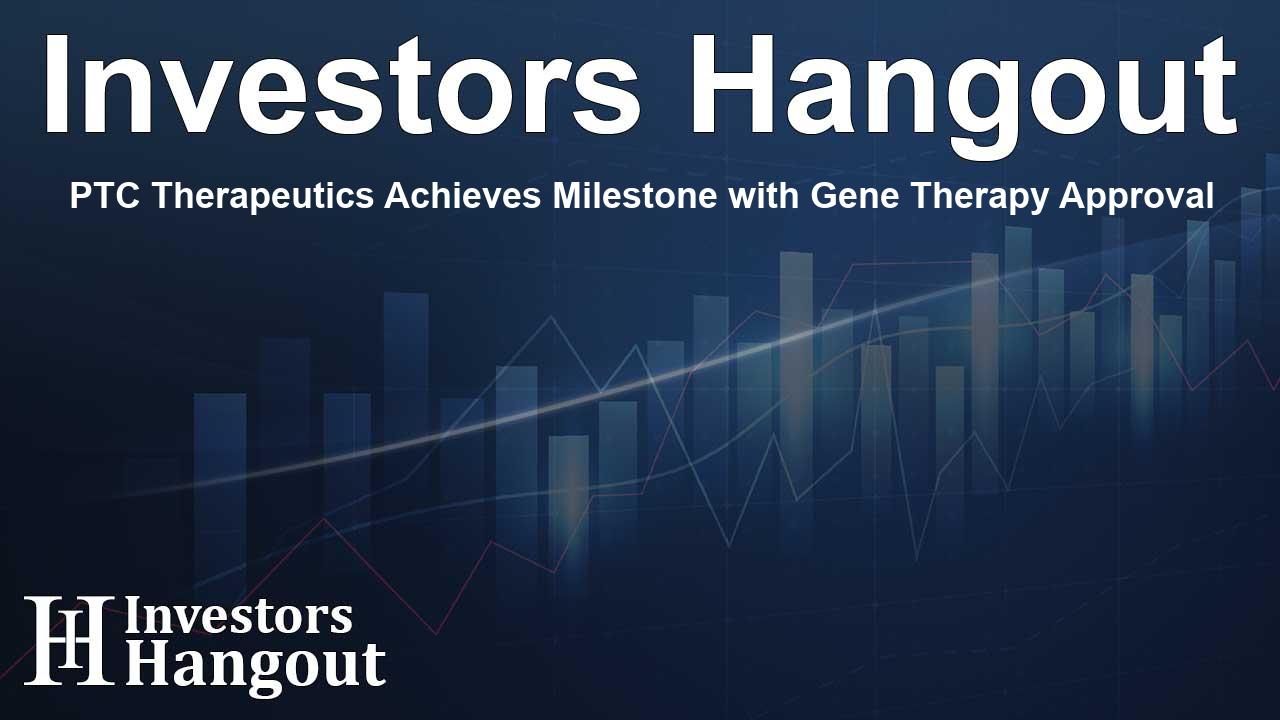PTC Therapeutics Achieves Milestone with Gene Therapy Approval

PTC Therapeutics Receives FDA Green Light for KEBILIDI
In a historic moment for gene therapy in the United States, PTC Therapeutics, Inc. (NASDAQ: PTCT) has announced that the U.S. Food and Drug Administration (FDA) has granted accelerated approval for its innovative gene therapy targeting AADC deficiency. This approval marks a significant milestone as it is the first gene therapy to be administered directly to the brain, showcasing the progress in treating rare genetic disorders.
What is AADC Deficiency?
AADC deficiency is a rare genetic disorder that prohibits the synthesis of dopamine, a crucial neurotransmitter for proper motor function. The absence of this neurotransmitter leads to severe physical and cognitive challenges, severely impacting the lives of affected individuals. Symptoms typically arise during infancy and can lead to debilitating conditions, leading to a life marked by significant disabilities.
Transformative Impact of KEBILIDI Treatment
The newly approved gene therapy, branded as KEBILIDI (eladocagene exuparvovec-tneq), is indicated for both children and adults suffering from AADC deficiency. This groundbreaking treatment offers hope by actually correcting the underlying genetic defect. KEBILIDI works by introducing a functioning DDC gene into the putamen of the brain, effectively restoring dopamine production.
Clinical trials have shown promising results, including improvements in the synthesis of dopamine and notable progress in motor development milestones following the treatment. The therapy is administered through a stereotactic neurosurgical procedure, which is minimally invasive and performed by specialized neurosurgeons trained in this technique.
Regulatory Insights and Future Steps
The FDA’s accelerated approval of KEBILIDI was supported by comprehensive safety and efficacy data from ongoing global clinical trials. This approval, alongside a Rare Disease Priority Review Voucher, allows PTC Therapeutics to mobilize resources efficiently for the commercialization of this innovative solution. The company is currently preparing for the therapy’s launch, including establishing centers of excellence and training surgeons across designated locations.
Understanding the Mechanism of KEBILIDI
KEBILIDI is classified as a recombinant adeno-associated virus serotype 2-based therapy. Its primary goal is to deliver a functional DDC gene directly to the patient's brain, thus increasing the production of the AADC enzyme. As a result, patients can start producing the dopamine needed for improved motor function, significantly alleviating symptoms and enhancing their quality of life.
Comprehensive Safety Profile
As with any advanced medical therapy, KEBILIDI comes with its own set of important safety information. Patients must be carefully monitored following the administration of KEBILIDI, as some procedure-related adverse events have been reported, such as dyskinesia, respiratory challenges, and cardiac issues. The most common side effects experienced by patients include dyskinesia, pyrexia, and hypotension.
About PTC Therapeutics, Inc.
PTC is a leading global biopharmaceutical company dedicated to developing transformative therapies aimed at treating rare and devastating diseases. Committed to innovation, PTC strives to create and commercialize solutions that significantly improve patient outcomes. The company focuses on leveraging its extensive expertise in both science and clinical development to ensure that they can deliver these life-changing therapies to those who need them most.
Frequently Asked Questions
What is AADC deficiency?
AADC deficiency is a rare neurological disorder resulting in severe movement and cognitive challenges due to the lack of dopamine production in the brain.
What does KEBILIDI do?
KEBILIDI is a gene therapy designed to correct the genetic defect that causes AADC deficiency, allowing the brain to produce dopamine.
How is KEBILIDI administered?
The therapy is delivered through a minimally invasive stereotactic neurosurgical procedure conducted by trained neurosurgeons.
Who can receive KEBILIDI treatment?
KEBILIDI is approved for use in both pediatric and adult patients with AADC deficiency.
What are the risks associated with KEBILIDI?
Common risks include dyskinesia and other procedure-related complications, which necessitate careful monitoring and management by healthcare professionals.
About Investors Hangout
Investors Hangout is a leading online stock forum for financial discussion and learning, offering a wide range of free tools and resources. It draws in traders of all levels, who exchange market knowledge, investigate trading tactics, and keep an eye on industry developments in real time. Featuring financial articles, stock message boards, quotes, charts, company profiles, and live news updates. Through cooperative learning and a wealth of informational resources, it helps users from novices creating their first portfolios to experts honing their techniques. Join Investors Hangout today: https://investorshangout.com/
Disclaimer: The content of this article is solely for general informational purposes only; it does not represent legal, financial, or investment advice. Investors Hangout does not offer financial advice; the author is not a licensed financial advisor. Consult a qualified advisor before making any financial or investment decisions based on this article. The author's interpretation of publicly available data shapes the opinions presented here; as a result, they should not be taken as advice to purchase, sell, or hold any securities mentioned or any other investments. The author does not guarantee the accuracy, completeness, or timeliness of any material, providing it "as is." Information and market conditions may change; past performance is not indicative of future outcomes. If any of the material offered here is inaccurate, please contact us for corrections.